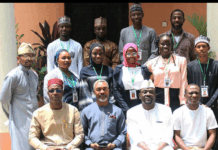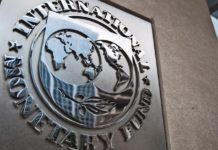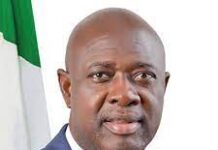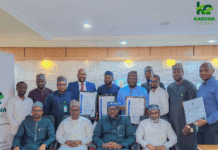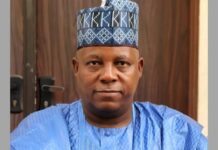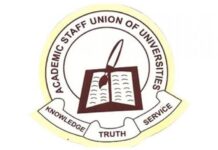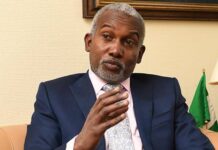
CISLAC/TI-Nigeria Drums Support for Whistle-blowers to Enhance Accountability in Defence and Security Sector
The Executive Director Civil Society Legislative Advocacy Centre (CISLAC)/Head of Transparency International in Nigeria (TI-Nigeria), Auwal Ibrahim Musa (Rafsanjani) has expressed concerns over the unchecked culture of exceptionalism that impacts negatively on transparency in the Defence and Security sector in Nigeria.
He made this known while giving an opening remark at a Steering Committee Meeting on Anti-corruption (Financial Management, Gender and Operational Disparities) in the Defence and Security Sector, organised by CISLAC/TI-Nigeria in collaboration with Transparency International – Defence and Security Program with support from Ministry of Foreign Affairs of the Netherlands in Enugu state.
Represented by the Program Manager (Defence & Security), CISLAC/TI-Nigeria, Abubakar Jimoh, noted that despite various reforms in the recent past to enhance its integrity and improve its effectiveness, needless secrecy and overall classification has continued to hamper transparency and accountability in the sector.
“Information accessibility in Defence and Security sector is sancroanct to unlock transparency and accountability in the Defence and Security.
“Contradictory provisions in the existing laws including Sections 1-4&6 of the Official Secret Act, LFN 2004; Section 97 of the Criminal Code Act in Nigeria; and Sections 11 & 12 of the Freedom of Information Act; Section 3(2) of the Public Procurement Act; Mandatory Oath of Secrecy constitute a major impediment to information disclosure, thus limiting external oversight effort at all levels.
“ Another major concern is lack of institutionalised strategy to protect information secrecy of whistle-blowers reporting corruption cases coupled with inadequate modern technology to efficiently facilitate accurate information gathering within the Defence and Security agencies; this discourages Whistle-blowing activities.
Read Also:
“It is more disturbing that delayed transparency and accountability of the Security Votes implementation at sub-national levels remains a major challenge to the promotion and realisation of human security in Nigeria, considering the recent growing attacks and killings in various part of Nigeria”, he highlighted.
The Executive Director expressed worries over lack of clear commitment by the present administration towards the implemention of Whistle-blower Policy or passage of related Bills into law,“which to a large extent will impact negatively on whistle-blowing activities and anti-corruption efforts, specifically in the Defence and Security sector in Nigeria.”
“As Nigerian society is a reflection of its security sector, it presents every citizen with the criticality to collectively advocate and support reform in Defence and Security sector, primarily to protect the internal image of the country.
“In recent times, sustainable internal security is backpedalled by endless kidnapping, banditry, insurgency, farmers-headers clashes, communal conflicts.
“As conflict fragility spreads rapidly across Nigeria, we are experiencing rising security incidence, exacerbated by attacks, financial crimes, armed clashes, mob violence, kidnapping for ransom and organ harvesting, violence demonstration, looting and property destruction, sexual violence; and owing to the activities of unknown gunmen, communal militia, herdsmen, resource struggles, pipeline vandalisation, and cultists,” he added.
Rafsanjani called for Renewed Civil Society advocacy towards the passage of comprehensive Whistleblowing Protection Bills and transition into legislation to promote and protect Whistle-blowing activities with their extension into some components of Defence and Security activities including commercial interests.
He further advocated enhanced agenda setting by Civil Society and the media to uncover neglected high-profile Defence corruption cases for maximum accountability.
The meeting aimed at strengthening the capacity of members of the Civil Society Steering Committee, to advocate and conduct state and national engagements towards an accountable, responsive, and efficient management of the Nigeria defence and security sector.

